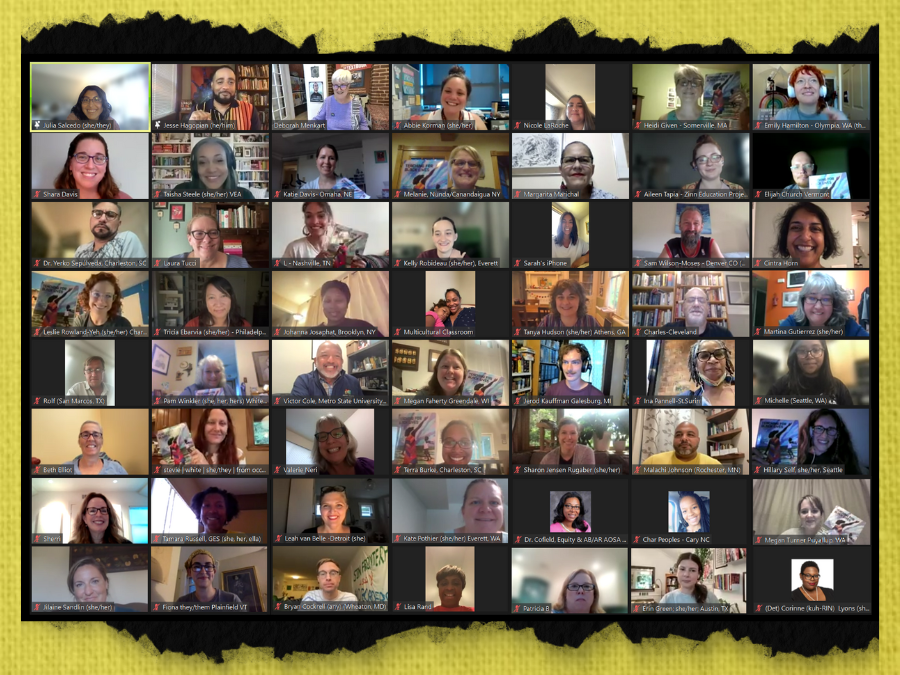In August and September, Teaching for Black Lives study group coordinators gathered for an orientation session to plan for the 2023–2024 school year. Jesse Hagopian, co-editor of Teaching for Black Lives and ZEP team member, opened the session affirming the study groups’ work as a continuation of the long tradition of “fugitive pedagogy.” Hagopian said,
All throughout U.S. history, Black education has been feared. It’s been vilified and outlawed by white supremacists that run the political and economic order. We can go back to 1739, when an enslaved African man from Angola launched the Stono Rebellion in South Carolina. . . The next year, they passed the first anti-literacy laws designed to prohibit Black people from reading. Enslaved people and their allies resisted. They snuck off plantations to teach others how to read and write, even though it was illegal.
We have hundreds of study groups with thousands of educators all across the country, even in school districts and states that have said teaching the truth is banned, and we have some courageous educators who refuse to lie to children.
Providing historical context of the Black education-for-liberation movement, Hagopian talked about the Reconstruction era when Black educators in the South built the public school system, the Freedom Schools organized during the Civil Rights Movement, and today’s Black Lives Matter at School movement that demands police-free schools, restorative justice, and Black and ethnic studies.
Hagopian played a one-minute clip of Charles Cobb, a SNCC veteran who wrote the treatise for Freedom Schools, and referenced the following quote from him:
Freedom Schools in 1964 were not simply an effort at remedying the issues of reading, writing, arithmetic, and history. They were part of the structure aimed at resisting the enslavement of Black minds.
In breakout groups, participants reflected on two questions:
- What is your relationship to this tradition?
- How are your goals for the study group aligned with this tradition?
Coordinators shared something they heard, shared, or noticed in their conversation:
I shared how as a young white teacher, I didn’t know what I didn’t know, so my relationship to the history of education as liberation is one of gradually coming to understand the system of oppression I was part of.
Commonalities with the need to educate parents and fight back the narrative that we are teaching “radically” and not just actual history. Books and education are on the front lines.
Big takeaway: “blue dot” / “liberal area” does not necessarily equal anti-racist and equitable education.
For the remainder of the session, coordinators reviewed the facilitation guide, and gathered in breakout rooms to discuss plans and/or concerns for their study groups.
Read what coordinators appreciated and took from the session.


